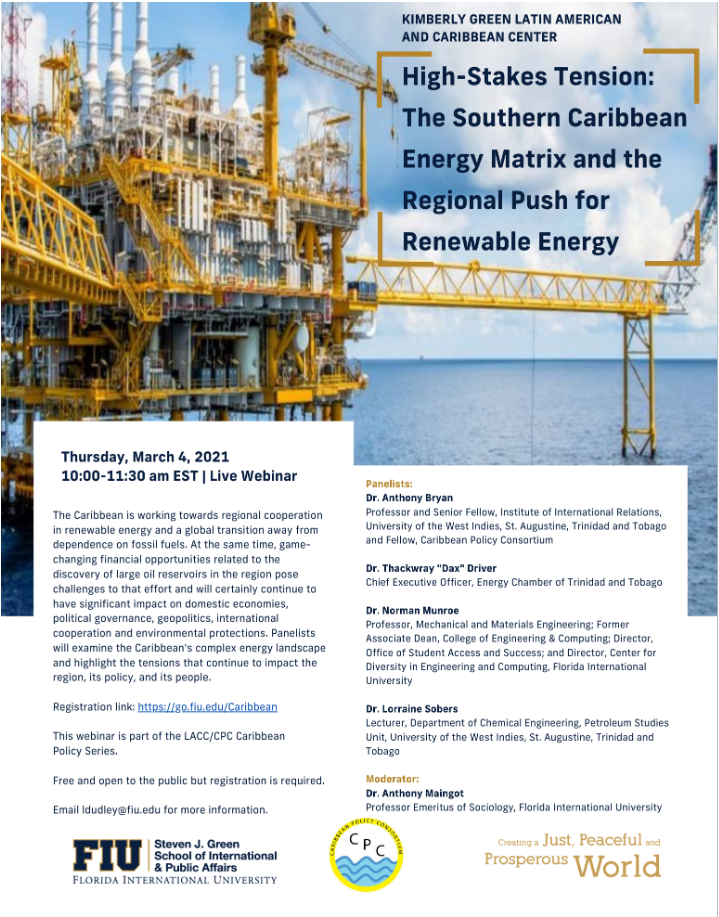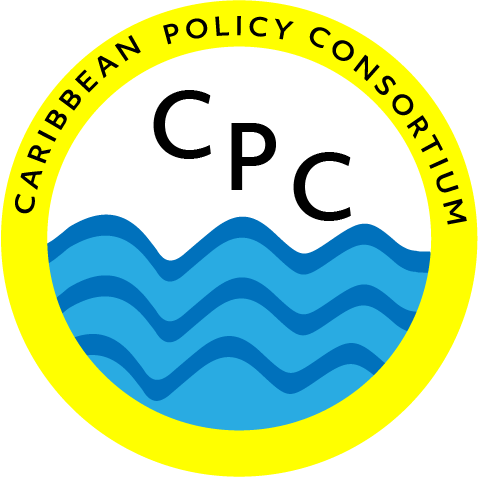Presenter
Dr. Anthony T. Bryan
Professor Emeritus at the Institute of International Relations of the University of The West Indies, St. Augustine, Trinidad and Tobago; Senior Associate of the Center for Strategic and International Studies; and Fellow, Caribbean Policy Consortium
March 4, 2021
Summary
The current energy landscape of the Southern Caribbean and Northern South America is complex. The Guyana-Suriname Basin (GSB) is emerging as the Holy Grail of new oil provinces. In trying to achieve cooperation in energy security and complete the transition from dependence on fossil fuels, there are game changing financial opportunities for the Southern Caribbean and Northern South America. Concurrently, there are serious challenges and impacts on domestic economies, political governance, energy security, geopolitics, regional and international cooperation, and environmental protections.
Continued investment by the international oil companies (IOCs) in the GSB, and national oil company (NOC) investment in northern South America are the current exceptions to the global trend of a shift from fossil fuels to renewable energy. Oil and gas will be around for decades to come, but the warning signs are clear. We are witnessing a dress rehearsal for a structural decline in the oil and gas industry that can threaten traditional resource development models.
Agencies in the GSB countries responsible for the petroleum sector, finance ministries involved in planning, and political leaders will need to adjust their goals and acknowledge the risks inherent in this volatile sector. It is important for them to understand the changes, work with different scenarios to support their planning, and update their policies and systems. A more fundamental re-evaluation of policy goals may also be necessary. The risks associated with fiscal dependence on the fossil fuel sector should be clearly understood. The old mantra of economic diversification is emphasized.

Panelists
Dr. Anthony Bryan
Professor and Senior Fellow, Institute of International Relations, University of the West Indies, St. Augustine, Trinidad and Tobago and Fellow, Caribbean Policy Consortium
Dr. Thackwray “Dax” Driver
Chief Executive Officer, Energy Chamber of Trinidad and Tobago
Dr. Norman Munroe
Professor, Mechanical and Materials Engineering and Director, Office of Student Access and Success and Center for Diversity in Engineering and Computing, Florida International University
Dr. Lorraine Sobers
Lecturer, Department of Chemical Engineering, Petroleum Studies Unit, University of the West Indies, St. Augustine, Trinidad and Tobago and Fellow, Caribbean Policy Consortium
Moderator
Dr. Anthony Maingot
Professor Emeritus of Sociology, Florida International University
Latest Webinars
- Haiti: Moving Beyond the Crisis and U.S. Responses
- Transforming Guyana Season II, Episode 12
- CHALLENGED SOVEREIGNTY: THE IMPACT OF DRUGS, CRIME, TERRORISM AND CYBERTHREATS IN THE CARIBBEAN BY IVELAW LLOYD GRIFFITH
- Caribbean Energy 2024: Prospects, Challenges & Opportunities for Oil-Gas, Renewables and Environment
- Transforming Guyana: Season II, Episode XI, Community Engagement in the Era of Oil & Gas

